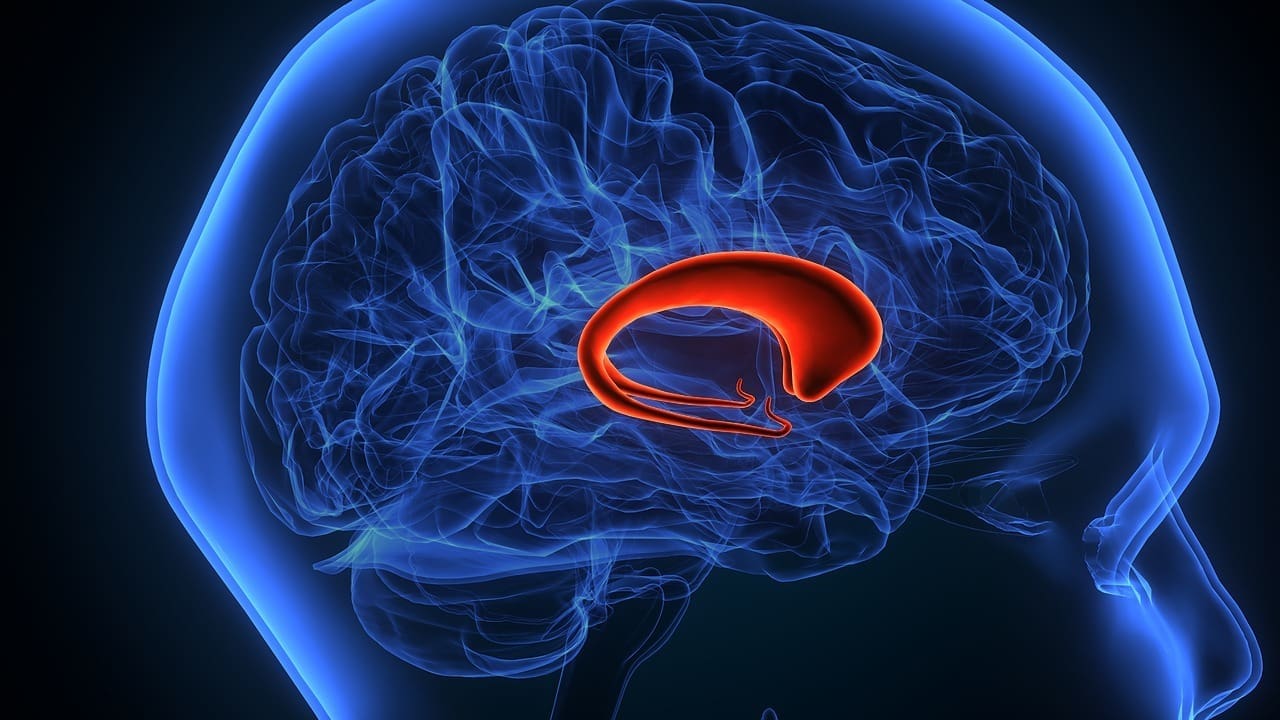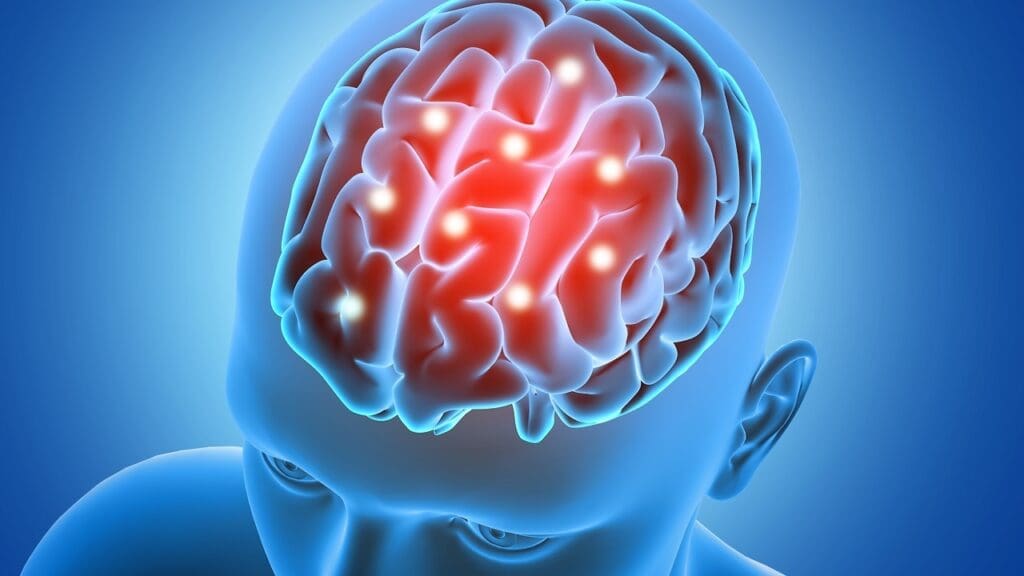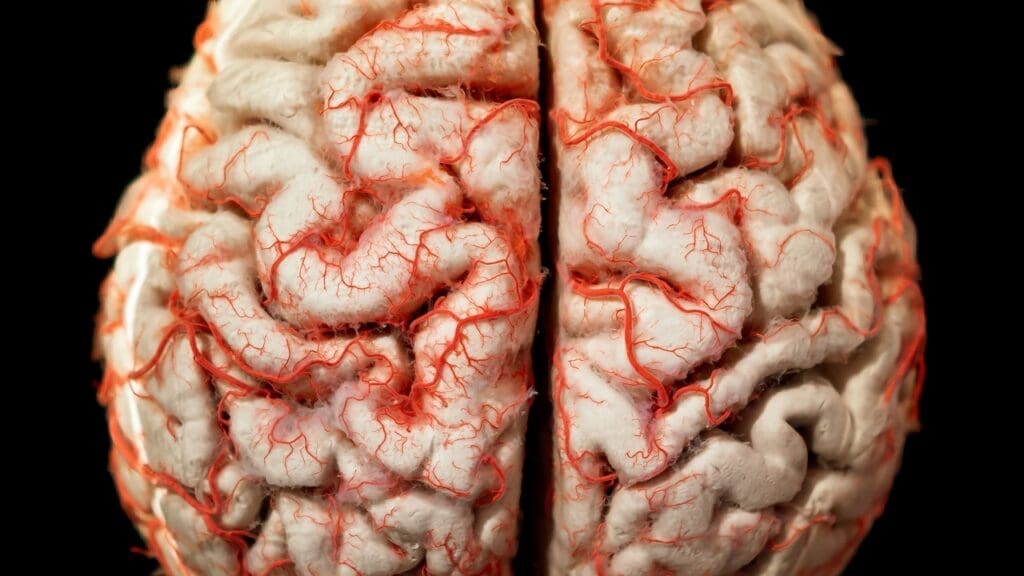
Memory loss can be very distressing, and it’s even more alarming when it’s due to a brain tumor. At Liv Hospital, we know how much memory problems can affect someone’s life. Our team is here to offer caring and detailed care to those facing these issues.
Glioblastoma (GBM) is the most common primary malignant brain tumor in adults. It affects over 23,000 new patients in the US each year. But, other brain tumors, like metastatic growths, can also cause memory loss. The location and type of tumor can significantly influence the severity of memory difficulties.
We will look at the different brain tumors that can lead to memory loss. We’ll also talk about how our patient-centered care can help. By understanding why memory loss happens, we can work towards better management and outcomes for our patients.
Key Takeaways
- Glioblastoma is the most common primary malignant brain tumor in adults.
- Metastatic brain tumors can also cause memory loss.
- The location and type of tumor influence the severity of memory difficulties.
- Liv Hospital provides compassionate and detailed care for patients with brain tumors.
- Understanding the underlying causes of memory loss is key for effective management.
The Connection Between Brain Tumors and Cognitive Function

It’s important to know how brain tumors affect our thinking and memory. These tumors can really change a person’s life, making it hard to remember things.
How Brain Tumors Disrupt Neural Pathways
Brain tumors can mess up how our brain cells talk to each other. This can lead to problems with thinking and memory. The size and where the tumor is can affect how much it messes with our brain.
For example, tumors near the hippocampus, a key memory area, can cause big memory problems. Memory issues are a big concern for many with brain tumors.
The most common tumor in adults is meningioma, which is usually not cancerous. It makes up about 38 percent of cases. Tumors are measured in centimeters, and their size and where they are can affect how much they mess with our brain.
Prevalence of Memory Issues in Brain Tumor Patients
Many brain tumor patients have trouble remembering things. Studies show a lot of patients face memory problems. This can be because of where, how big, and what kind of tumor they have.
| Tumor Type | Prevalence of Memory Issues |
|---|---|
| Meningioma | 30-50% |
| Glioma | 40-60% |
| Other Types | 20-40% |
The table shows memory problems vary with different tumors. Knowing this can help plan better care for patients.
“Cognitive function is often compromised in patients with brain tumors, resulting in memory difficulties and other issues.” This statement highlights the need to tackle brain tumor-related thinking problems.
What Type of Brain Tumor Causes Memory Loss: Common Culprits

Different brain tumors can cause memory loss by hitting various brain areas. The tumor’s location and type greatly affect the symptoms. This includes how a patient’s memory might be affected.
Frontal Lobe Tumors and Executive Memory
Tumors in the frontal lobe mess with planning, decision-making, and solving problems. These issues can make it hard to organize tasks, follow instructions, and stay focused.
Temporal Lobe Tumors and Declarative Memory
The temporal lobe is key for remembering facts and personal stories. Tumors here can make it tough to learn new things and remember past events.
Hippocampal Region Tumors and Memory Formation
The hippocampus is vital for making new memories. Tumors here can make it hard to remember faces, conversations, or new skills.
Case Studies and Research Findings
Studies show brain tumors’ impact on memory depends on their location. For example, meningiomas or gliomas on top of the brain can cause symptoms. Research also points to the Wnt/β-catenin pathway in glioblastoma stem cells affecting memory.
Knowing the brain tumor type and location is key to managing memory symptoms. By looking at case studies and research, we can understand how brain tumors affect memory.
Meningiomas and Memory: Understanding the Most Common Brain Tumor
Meningiomas are the most common brain tumors in adults. They often worry people about memory and thinking skills. Most brain tumors, about 68 to 70 percent, are not cancerous. Around 30 percent are cancerous. Meningiomas are not cancerous but can cause memory problems.
Characteristics of Meningiomas
Meningiomas grow slowly and start in the meninges. These are protective membranes around the brain and spinal cord. They are usually not cancerous and can be found by chance during tests. But, they can press on brain areas and cause thinking problems.
When and Why Meningiomas Affect Memory
How meningiomas affect memory depends on where they are. Tumors near important brain areas can mess with memory. For example, those near the hippocampus, key for memory, can cause big memory issues.
Living with a Benign Brain Tumor
Living with a meningioma needs careful watching and management. Some meningiomas don’t cause symptoms and might not need treatment right away. But, if they do cause problems like memory loss, treatment might be needed. Knowing about meningiomas and how they can affect thinking is important for patients.
| Aspect | Description | Impact on Memory |
|---|---|---|
| Location | Tumors near frontal or temporal lobes | Disrupts neural pathways, causing memory issues |
| Size | Larger tumors | Increased pressure on brain structures, potentially worsening memory problems |
| Growth Rate | Slow-growing | Gradual impact on memory, allowing for possible adaptation |
We know that even though meningiomas are not cancerous, they can really affect a person’s life. This is true, even for memory. By understanding meningiomas and their effects, patients can handle their situation better.
Malignant Brain Tumors and Their Impact on Memory Function
It’s key to understand how malignant brain tumors affect memory. Tumors like glioblastomas and metastatic brain tumors can cause memory loss and cognitive decline.
Glioblastomas and Cognitive Decline
Glioblastoma is a common brain tumor in adults, with a short survival time. Glioblastoma and memory loss are closely related. The tumor’s growth can harm brain areas that handle memory.
Patients often face cognitive decline. This includes memory loss, confusion, and trouble focusing.
Metastatic Brain Tumors and Memory Loss
Metastatic brain tumors start from cancer elsewhere and can cause memory problems. Metastatic brain tumors and memory loss depend on the tumor’s size and location. These tumors can lead to memory loss and confusion in cancer patients.
Progression of Memory Symptoms in Malignant Cases
The worsening of memory symptoms in malignant tumors varies. It depends on the tumor type, location, and how well it responds to treatment. As tumors grow, memory symptoms can get worse, causing significant cognitive issues.
Understanding how these symptoms progress is key to managing patient care. It helps in finding ways to reduce memory loss.
In conclusion, malignant brain tumors, including glioblastomas and metastatic brain tumors, have a big impact on memory. It’s important to recognize these effects to provide the best care for patients.
The Role of Tumor Size, Location, and Growth Rate
Brain tumors can affect memory in many ways. The size, location, and how fast they grow are key. These details help doctors understand how a tumor might harm memory.
Critical Brain Areas for Memory Function
Memory is linked to certain brain spots, like the hippocampus and temporal lobe. Tumors in these areas can mess with memory. For example, hippocampal region tumors can make it hard to form new memories.
How Tumor Size Affects Symptom Severity
The size of a brain tumor plays a big role in symptoms, including memory loss. Bigger tumors put more pressure on the brain, causing worse symptoms. Tumors over 3 cm can lead to more memory problems than smaller ones, like those under 1.5 cm.
Pressure Effects and Memory Impairment
The growth rate of a tumor and the pressure it puts on the brain also matter. As a tumor grows, it can press on nearby brain parts, harming memory. This pressure can mess with brain functions needed for memory.
Understanding how tumors affect memory is complex. Doctors can use this knowledge to better help patients with brain tumor-related memory issues. This way, they can offer more effective support.
Can Pituitary Tumors Cause Memory Loss?
Pituitary tumors, even if they are not cancerous, can harm memory. The pituitary gland controls many body functions by making hormones. If a tumor grows, it can mess up hormone levels, affecting memory and thinking.
The Pituitary Gland’s Relationship to Memory
The pituitary gland affects memory by controlling other glands. For example, it helps the thyroid gland, which is key for brain function. Hormonal imbalances from pituitary tumors can cause tiredness, which can hurt memory and thinking.
Hormonal Imbalances and Cognitive Function
Hormones from the pituitary gland, like growth hormone, help with energy and brain work. If these hormones are off, it can cause memory problems. For instance, not enough thyroid hormone can make it hard to focus and remember things.
Distinguishing Features of Pituitary Tumor Memory Issues
| Symptom | Description |
|---|---|
| Memory Loss | Forgetting recent events or learning new information |
| Hormonal Imbalance | Changes in hormone levels affecting various bodily functions |
| Cognitive Fog | Difficulty concentrating or making decisions |
To understand how pituitary tumors affect memory, we need to look at both direct and indirect effects.
Recognizing Brain Tumor Memory Loss Symptoms
Brain tumor memory loss symptoms can be hard to spot at first. But catching them early is key to getting the right treatment. We’ll look at the early signs, other symptoms, and how to tell if it’s a brain tumor or just getting older.
Early Warning Signs and Patterns
Memory loss from brain tumors shows up in certain ways. People might find it hard to make new memories, learn new stuff, or remember names and words. They might also struggle with tasks that need several steps or following conversations.
Other early signs include asking the same questions over and over, losing things, or getting lost in places they know. These symptoms can come and go or get worse over time, depending on the tumor.
Accompanying Symptoms Beyond Memory Loss
Brain tumors can also cause other symptoms. Headaches, seizures, and mood changes are common. Some people might feel weak or numb in certain parts of their body, have trouble speaking or understanding, or see things differently.
The symptoms can change a lot based on where the tumor is. For example, tumors in the frontal lobe might mess with motor skills or mood. Tumors in the temporal lobe could affect language or hearing.
Differentiating from Age-Related Memory Changes
Telling if memory loss is from a brain tumor or just getting older can be tricky. Age-related memory loss usually means forgetting recent stuff but doesn’t really mess up daily life. Brain tumor-related memory loss is often worse and comes with other brain symptoms.
When to Seek Medical Attention
If you or someone you know is having trouble remembering things or other symptoms that bother daily life, see a doctor. Getting diagnosed and treated early can really help brain tumor patients.
It’s a good idea to talk to a doctor if memory loss or other brain symptoms keep getting worse or don’t go away.
Memory Loss After Brain Tumor Surgery: Causes and Management
Many brain tumor patients face memory loss after surgery. This affects their daily life and recovery. Brain tumor surgery is scary, and worries about memory loss are common.
Expected vs. Unexpected Memory Changes
Patients may see different memory changes after surgery. Some changes are normal, while others are not. Knowing the difference helps manage them better. Normal changes might include short-term confusion or trouble remembering recent things. But, unexpected changes could be more serious or last longer.
Temporary vs. Permanent Effects
Memory loss can be short-term or permanent after surgery. The surgery’s extent and location matter a lot. Short-term effects might go away with time and therapy. But, permanent effects might need long-term strategies to adapt.
Rehabilitation Strategies for Post-Surgical Memory Issues
Rehabilitation is key after brain tumor surgery. It helps manage memory loss in several ways:
- Cognitive exercises tailored to the patient’s needs
- Adaptive techniques to compensate for memory gaps
- Support groups for emotional and psychological support
Cognitive Exercises and Adaptive Techniques
Cognitive exercises aim to boost memory and brain function. They include memory games, puzzles, and brain challenges. Adaptive techniques, like using calendars and reminders, help manage daily life.
Studies show that good rehabilitation programs can greatly help brain tumor patients. By using cognitive exercises and adaptive techniques, patients can deal with memory loss better.
Conclusion: Outlook and Support for Patients with Brain Tumor-Related Memory Loss
Brain tumors can really affect how we think and remember things. Thanks to new research and treatments, there’s hope for those affected. It’s key to support patients with memory loss from brain tumors for their well-being.
Patients need help managing their memory loss. We offer special resources for them. It’s important to help them improve their life quality through rehabilitation.
There’s a lot of hope for brain tumor patients. New research and treatments are making things better. We’re dedicated to giving top-notch care to all patients, including those with memory loss.
FAQ
What type of brain tumor is most likely to cause memory loss?
Tumors in the frontal and temporal lobes, and the hippocampal region, often lead to memory loss. This is because they affect key areas of the brain that handle memory.
Can a benign brain tumor cause memory loss?
Yes, benign tumors like meningiomas can affect memory. Their size and location matter. Even though they’re not cancerous, they can disrupt brain function.
How does tumor size affect memory loss?
Bigger tumors can cause more memory loss. They put pressure on the brain and mess with neural pathways.
Can pituitary tumors cause memory loss?
Yes, pituitary tumors can lead to memory loss. They do this through hormonal imbalances and by affecting brain function. The pituitary gland controls hormones that impact memory.
What are the early warning signs of brain tumor-related memory loss?
Look out for trouble making new memories, feeling confused, and disoriented. You might also have headaches, seizures, and changes in behavior or personality.
How can brain tumor-related memory loss be differentiated from age-related memory changes?
Brain tumor-related memory loss is sudden and severe. Age-related memory changes are gradual. A doctor’s diagnosis is key to telling them apart.
What are the rehabilitation strategies for post-surgical memory issues?
Strategies include cognitive exercises, memory aids, and adaptive techniques. A good support plan can help manage memory loss and improve life quality.
Can short-term memory loss be cured?
Treatment for short-term memory loss varies by cause. Sometimes, fixing the underlying issue, like a brain tumor, can help improve memory.
How do malignant brain tumors affect memory function?
Malignant tumors, like glioblastomas, can severely impact memory. They lead to cognitive decline and memory loss.
What are the critical brain areas for memory function?
Key areas for memory are the hippocampus, temporal lobe, and frontal lobe. Tumors in these spots can disrupt memory, causing loss and cognitive problems.
FAQ
What type of brain tumor is most likely to cause memory loss?
Tumors in the frontal and temporal lobes, and the hippocampal region, often lead to memory loss. This is because they affect key areas of the brain that handle memory.
Can a benign brain tumor cause memory loss?
Yes, benign tumors like meningiomas can affect memory. Their size and location matter. Even though they’re not cancerous, they can disrupt brain function.
How does tumor size affect memory loss?
Bigger tumors can cause more memory loss. They put pressure on the brain and mess with neural pathways.
Can pituitary tumors cause memory loss?
Yes, pituitary tumors can lead to memory loss. They do this through hormonal imbalances and by affecting brain function. The pituitary gland controls hormones that impact memory.
What are the early warning signs of brain tumor-related memory loss?
Look out for trouble making new memories, feeling confused, and disoriented. You might also have headaches, seizures, and changes in behavior or personality.
How can brain tumor-related memory loss be differentiated from age-related memory changes?
Brain tumor-related memory loss is sudden and severe. Age-related memory changes are gradual. A doctor’s diagnosis is key to telling them apart.
What are the rehabilitation strategies for post-surgical memory issues?
Strategies include cognitive exercises, memory aids, and adaptive techniques. A good support plan can help manage memory loss and improve life quality.
Can short-term memory loss be cured?
Treatment for short-term memory loss varies by cause. Sometimes, fixing the underlying issue, like a brain tumor, can help improve memory.
How do malignant brain tumors affect memory function?
Malignant tumors, like glioblastomas, can severely impact memory. They lead to cognitive decline and memory loss.
What are the critical brain areas for memory function?
Key areas for memory are the hippocampus, temporal lobe, and frontal lobe. Tumors in these spots can disrupt memory, causing loss and cognitive problems.
References
- The Brain Tumour Charity (Memory Difficulties and Brain Tumours) : https://www.thebraintumourcharity.org/living-with-a-brain-tumour/side-effects/memory-difficulties-and-brain-tumours
- PMC – PubMed Central : https://pmc.ncbi.nlm.nih.gov/articles/PMC6824580
- PMC – PubMed Central : https://pmc.ncbi.nlm.nih.gov/articles/PMC4582304
- Cancer Research UK (Brain Tumour Symptoms) : https://www.cancerresearchuk.org/about-cancer/brain-tumours/symptoms




































